The new QO hotel in Amsterdam opened its doors this spring, and is a great example of how luxury and sustainability can be brought together in an inspiring way.
One of the highlights is its rooftop greenhouse that supplies ingredients (herbs, vegetables, fruit and even fish) to the on-site restaurants and bars. The hotel says: “The high-tech greenhouse is almost fully self-sufficient and self-regulating – fish waste provides an organic food source for the plants whilst the plants purify the water for the fish.”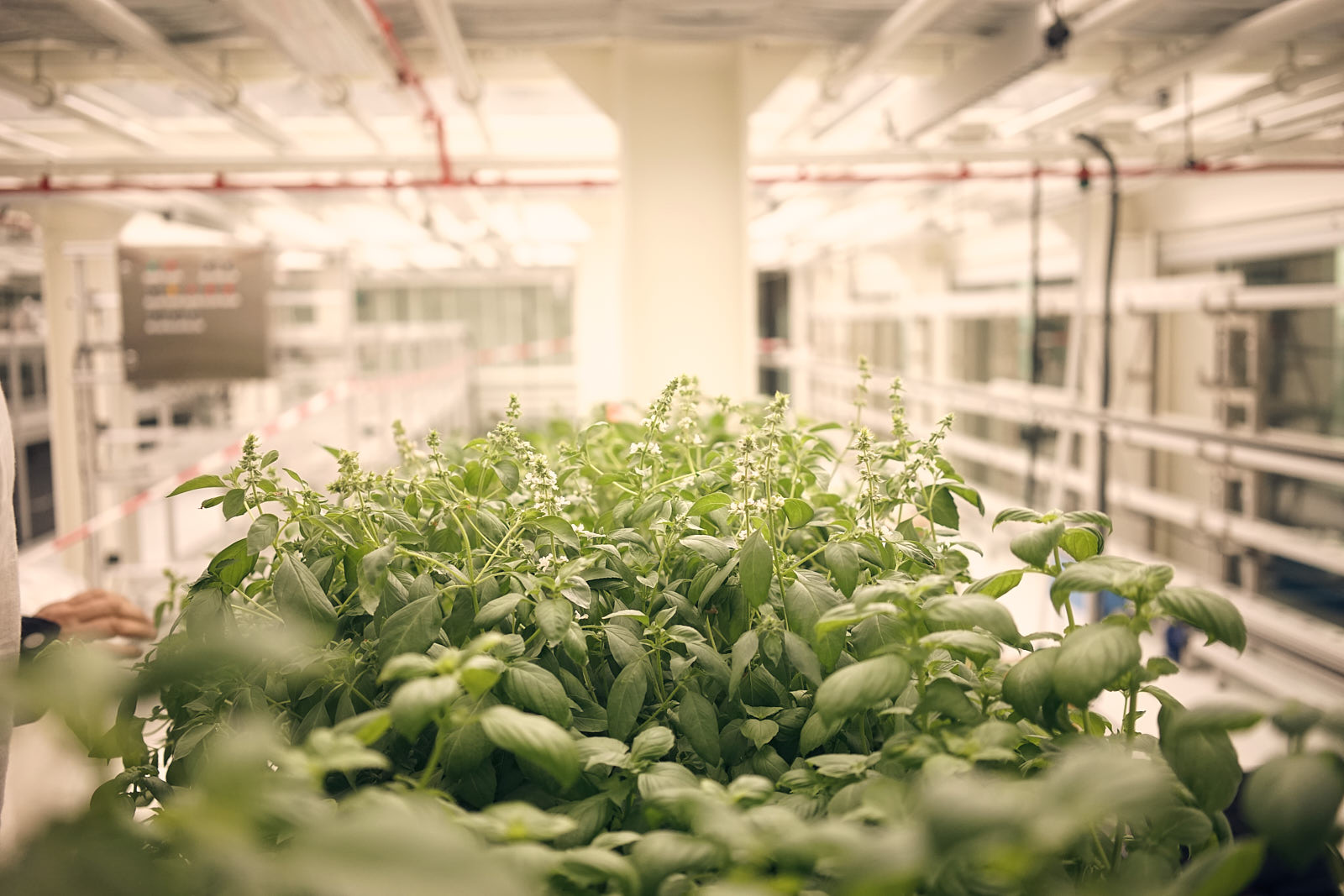 The fish the hotel raises is omega perch. QO says: “We chose it because not only does it provide the right kind of fertiliser for our plants, but it’s also a delicious fatty fish that can be prepared in multiple ways. We aim not to waste anything at the QO so once the fish have lived their natural lifecycle in the tanks, you’ll get to enjoy them on your plate.”
The fish the hotel raises is omega perch. QO says: “We chose it because not only does it provide the right kind of fertiliser for our plants, but it’s also a delicious fatty fish that can be prepared in multiple ways. We aim not to waste anything at the QO so once the fish have lived their natural lifecycle in the tanks, you’ll get to enjoy them on your plate.”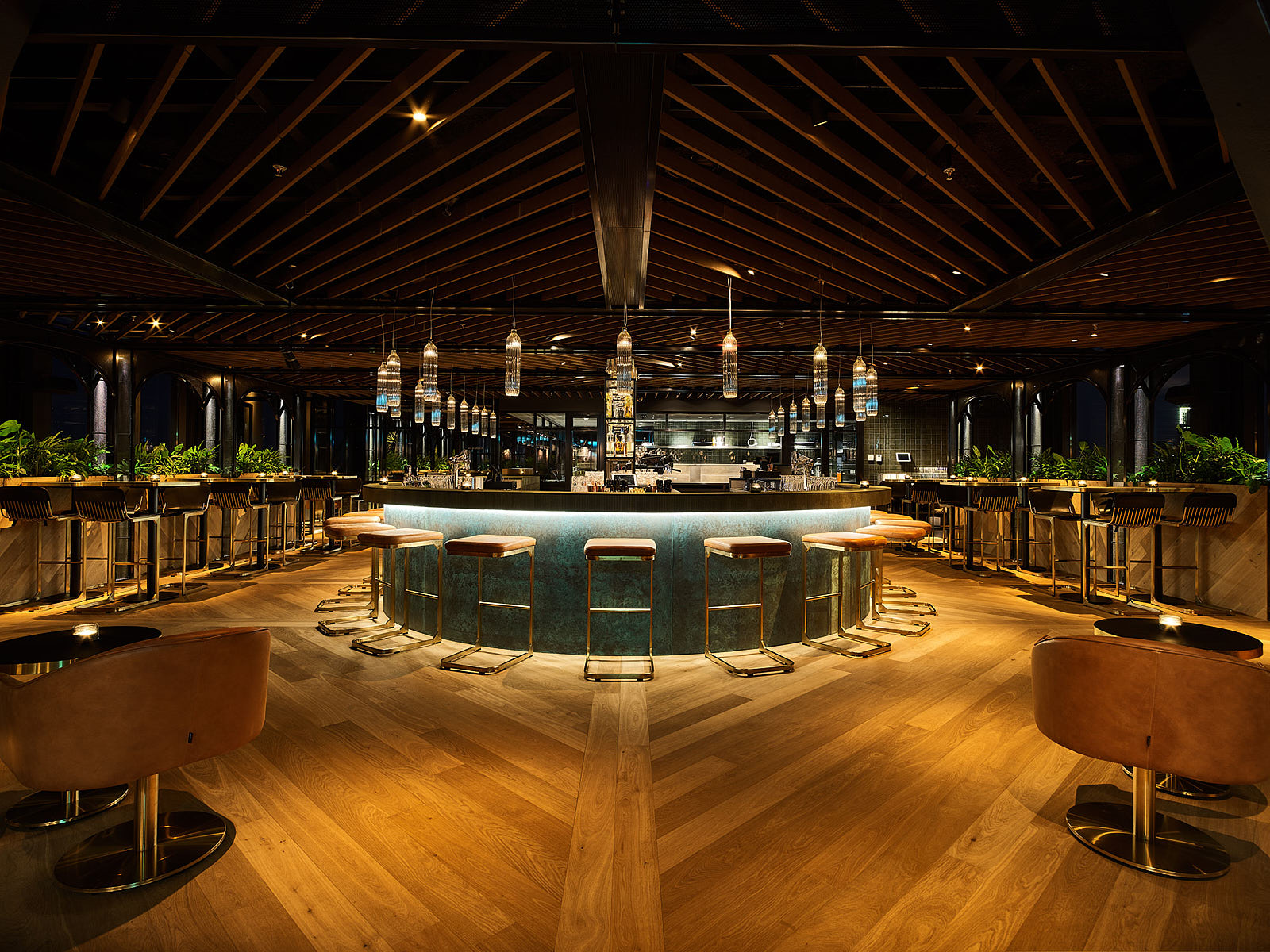 It adds: “Urban farming and circular greenhouses are not new concepts but their use in hospitality is limited. We want to prove that this approach is not only achievable but also the way of the future for city hotels.”
It adds: “Urban farming and circular greenhouses are not new concepts but their use in hospitality is limited. We want to prove that this approach is not only achievable but also the way of the future for city hotels.”

Dishes on the menu at Persijn restaurant include poached eggs with spinach and corn bread; codfish with celeriac, sea vegetables and cockles; and Josper-grilled aubergine with pepper and wheat.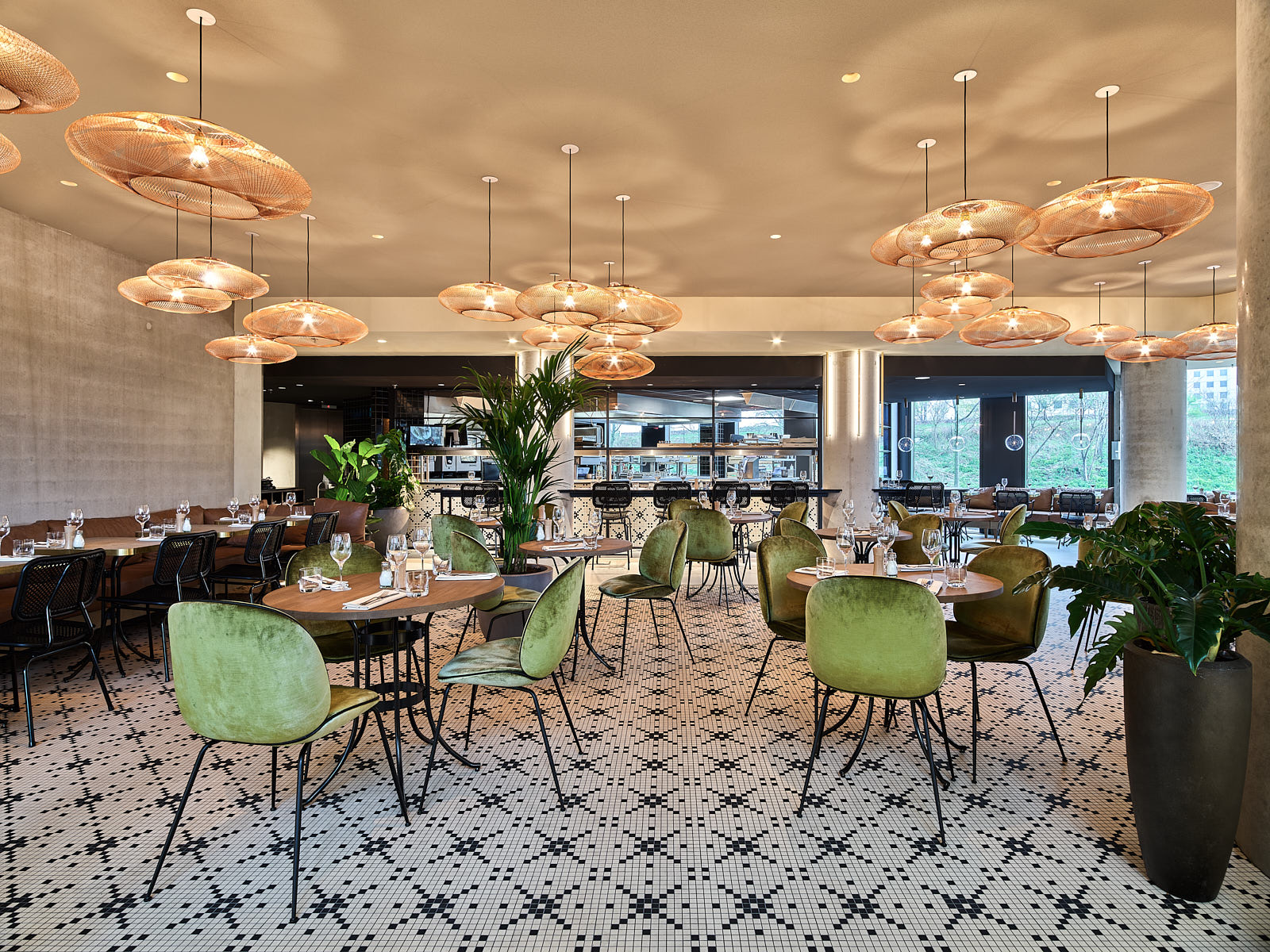 The QO hotel also has an “innovative façade” whereby aluminium panels installed on the outside of the building respond according to the climate and whether or not guests are in their room. Apparently, these panels provide additional insulation on cooler days and allow sunlight in for heating, ensuring a consistent room temperature.
The QO hotel also has an “innovative façade” whereby aluminium panels installed on the outside of the building respond according to the climate and whether or not guests are in their room. Apparently, these panels provide additional insulation on cooler days and allow sunlight in for heating, ensuring a consistent room temperature.
The hotel’s energy storage system is buried 70 metres below ground and holds heated water from the summer months ready to be pumped back in to warm the hotel during winter.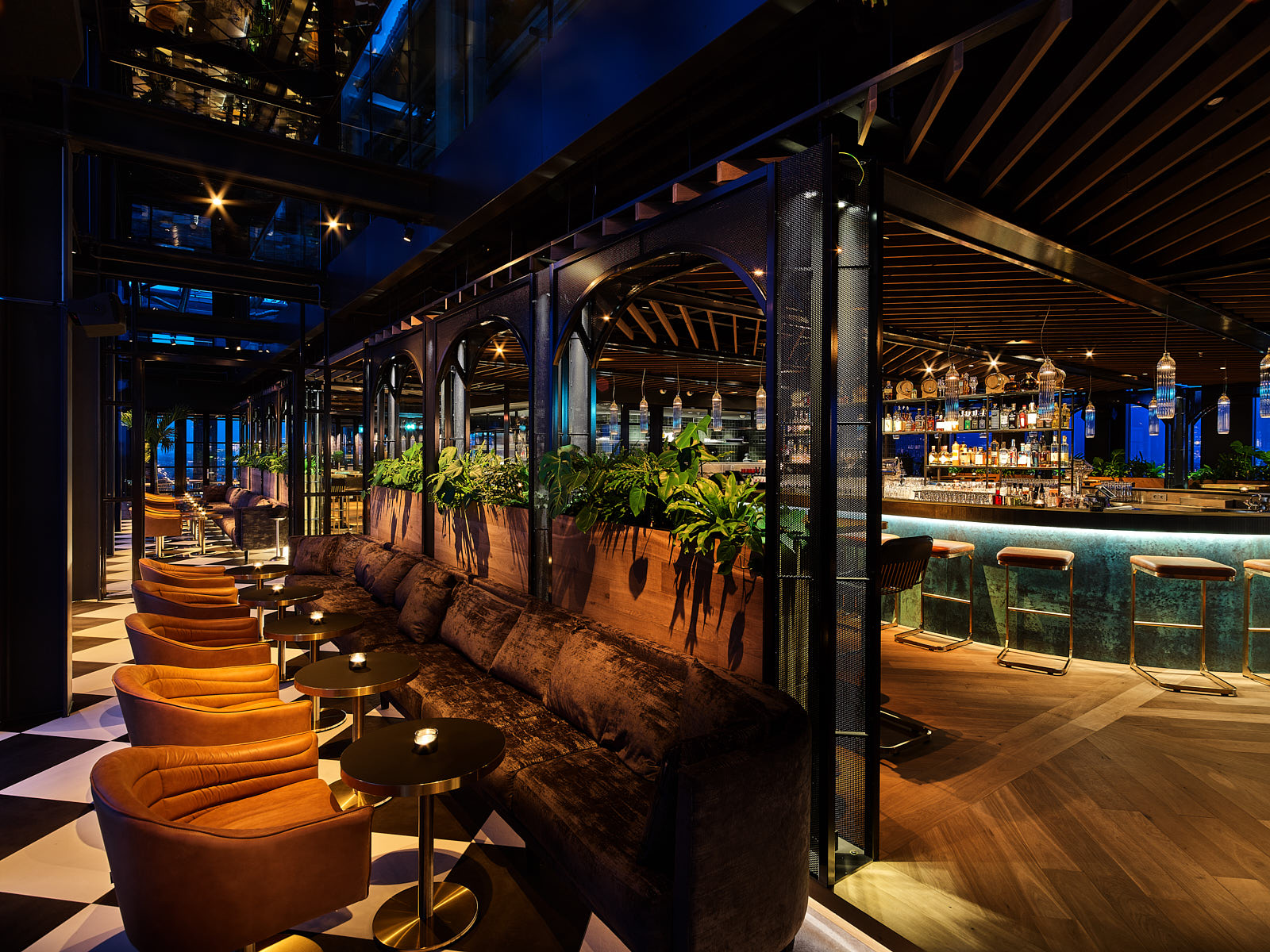 Meanwhile, floor-to-ceiling windows and an atrium mean that 80 per cent of the building’s illumination is provided by natural daylight, reducing the need for electric lighting during waking hours.
Meanwhile, floor-to-ceiling windows and an atrium mean that 80 per cent of the building’s illumination is provided by natural daylight, reducing the need for electric lighting during waking hours.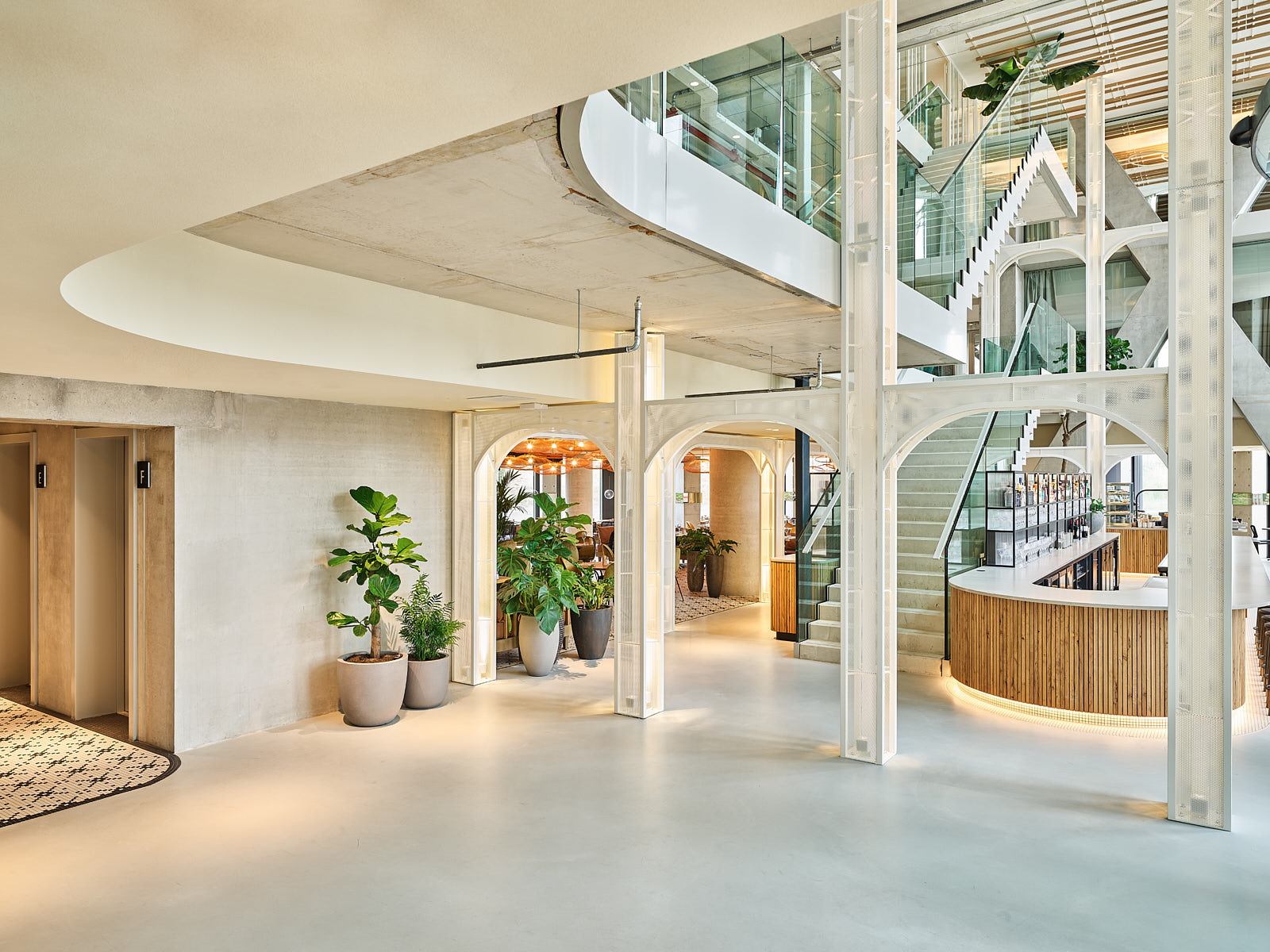 At first glance, the QO hotel’s trendy, design-led interiors make it look like an independent property but it is actually part of mega-chain Intercontinental Hotels Group. It follows in the footsteps of chic mini-franchise 1 Hotels, which currently has eco-luxury hotels in Miami and New York.
At first glance, the QO hotel’s trendy, design-led interiors make it look like an independent property but it is actually part of mega-chain Intercontinental Hotels Group. It follows in the footsteps of chic mini-franchise 1 Hotels, which currently has eco-luxury hotels in Miami and New York.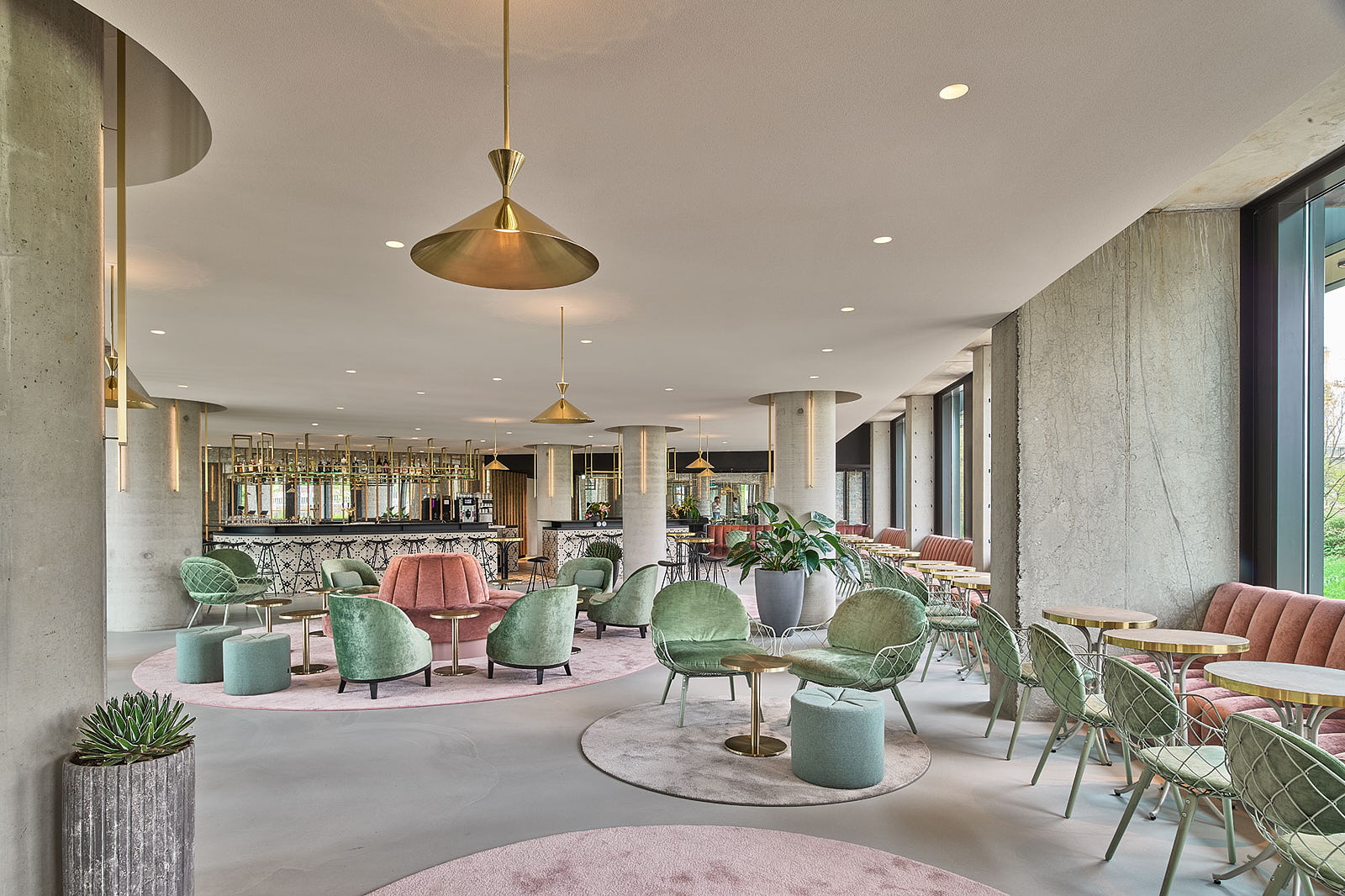 The QO has 288 rooms, including 12 suites, which were designed by London-based agency Conran and Partners. Amsterdam agency, Tank, designed the interiors of the restaurant, bar and public spaces.
The QO has 288 rooms, including 12 suites, which were designed by London-based agency Conran and Partners. Amsterdam agency, Tank, designed the interiors of the restaurant, bar and public spaces.
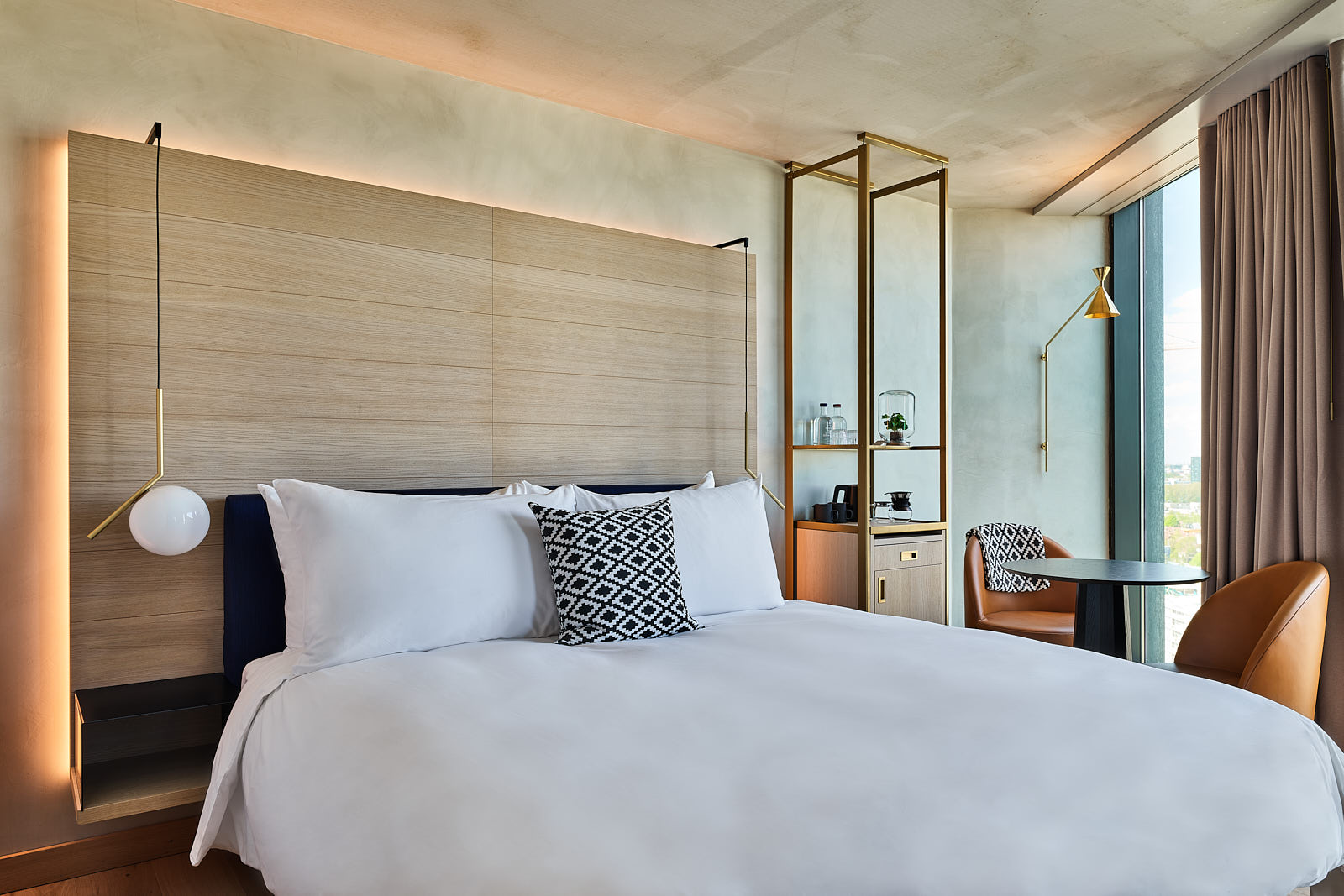
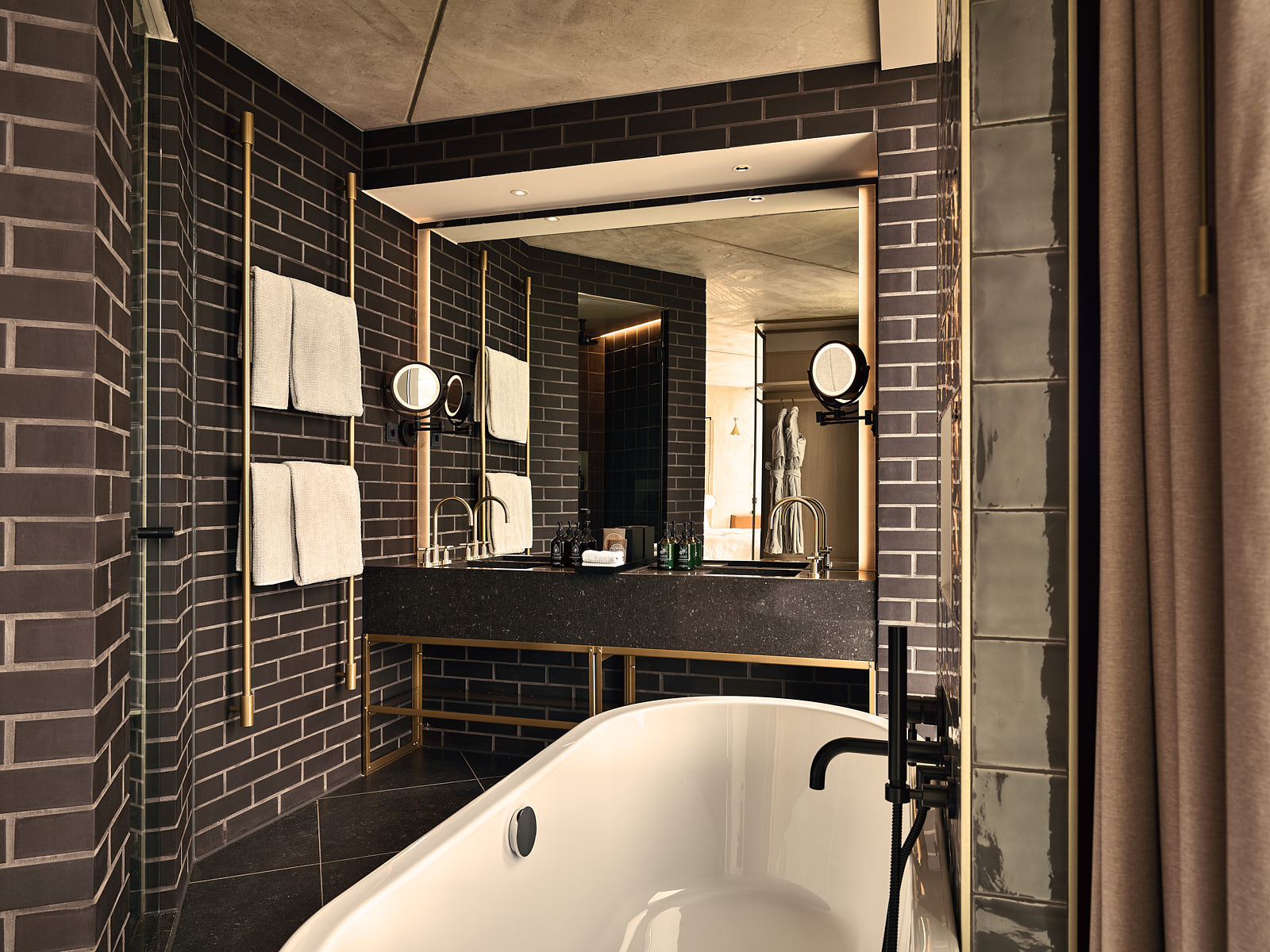 Taking fitness beyond the gym, Embody is described as a “holistic wellbeing studio” on the 20th floor that offers “the latest in fitness and wellness trends with a wide range of group classes, holistic personal training, small group training, nutritional food options and mindfulness workshops”.
Taking fitness beyond the gym, Embody is described as a “holistic wellbeing studio” on the 20th floor that offers “the latest in fitness and wellness trends with a wide range of group classes, holistic personal training, small group training, nutritional food options and mindfulness workshops”.
Inge van Weert, general manager of the QO, says: “We want the QO to stand out from other lifestyle destinations. Guests should not have to opt for either luxury or sustainability; we want to show that the two can be perfectly combined. We hope to be a breath of fresh air in the hospitality industry, paving the way for how hotels of the future are built and run.”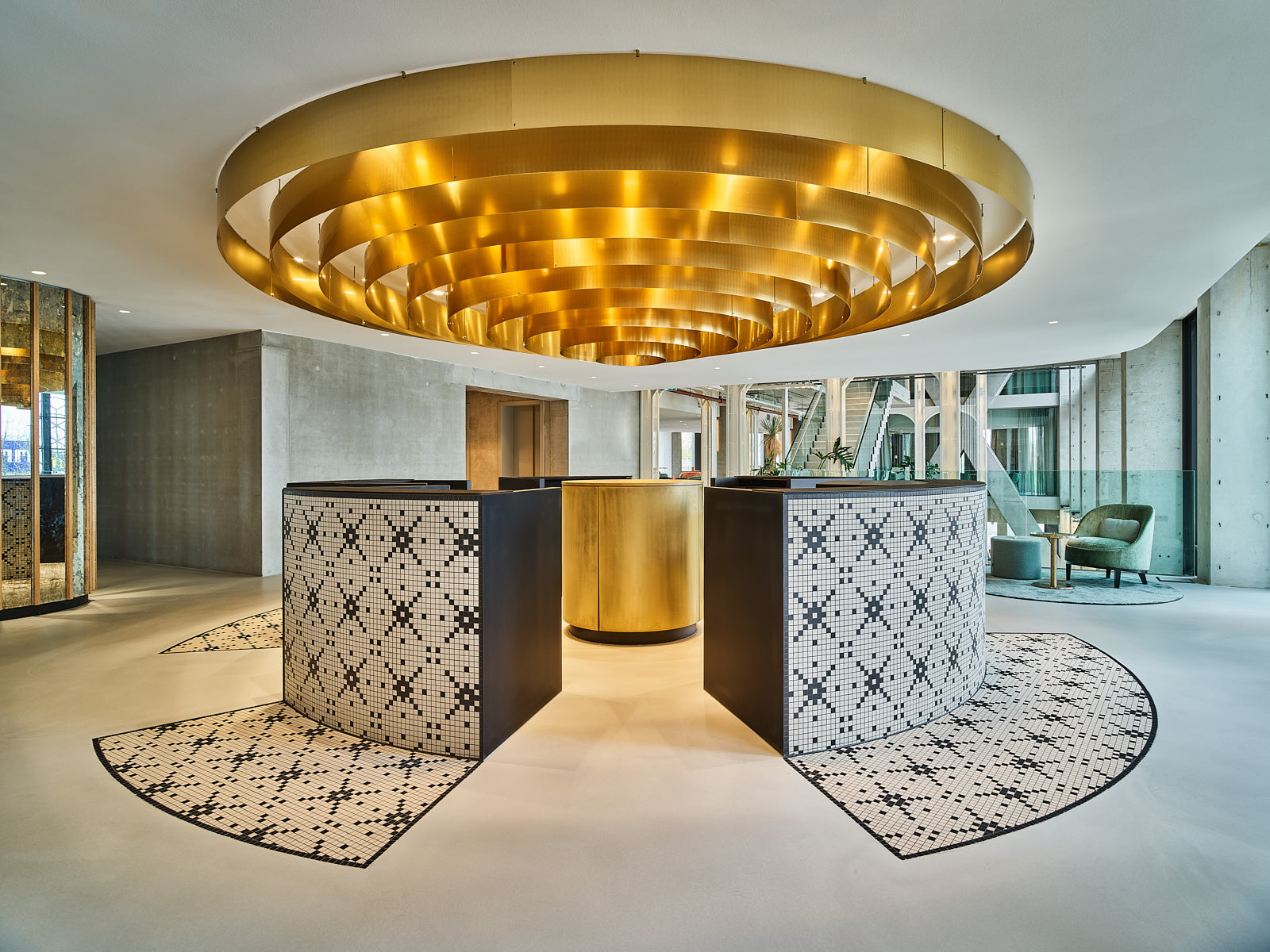 Although Globetrender is a supporter of hotels that embrace a care for the environment, it would need to visit the property itself to learn in more detail just how sustainable and eco-friendly it actually is. Travellers must be wary of “greenwashing” at a time when caring for the planet is finally becoming cool.
Although Globetrender is a supporter of hotels that embrace a care for the environment, it would need to visit the property itself to learn in more detail just how sustainable and eco-friendly it actually is. Travellers must be wary of “greenwashing” at a time when caring for the planet is finally becoming cool.
